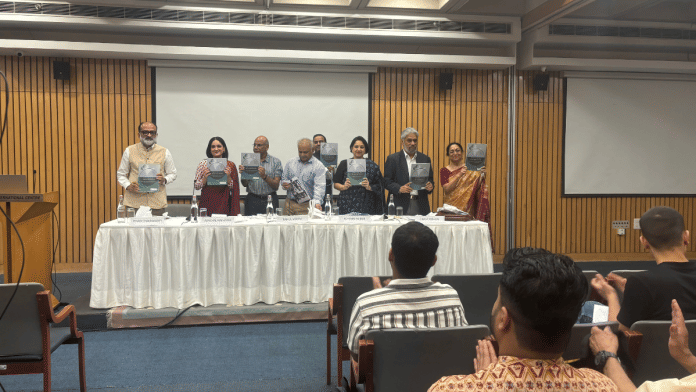New Delhi: Indians and Pakistanis don’t trust each other. Bangladeshis seem to trust everyone. Indians experienced one partition in 1947. Bangladeshis and Pakistanis remember two—the second one in 1971.
A new survey by the Centre for Policy Research and the CVoter Foundation sought to discover how Indians, Pakistanis, and Bangladeshis view each other and their respective countries. The report, titled South Asia in a Changing World, is the latest in a long list of conversations aimed at fostering more cooperation among the three nations.
“Partition is not something of the past, it is very much present. Our international and regional relations are really a reflection of our inability to solve the creation of new sovereignties, not once but twice over,” said journalist and foreign policy analyst C Raja Mohan at a panel discussion following the launch of the report at Delhi’s India International Centre on 29 August. It was moderated by CPR fellow and co-author of the report, Rahul Verma.
But the panel discussion began with a clarification and a caveat. The report does not account for the significant changes that have unfolded in any of the countries since 2002—the 2024 Indian general election, the unseating of the Sheikh Hasina government by a student movement in Bangladesh, and the faceoff between Imran Khan and the Pakistan Army. Instead, the 12,258 people surveyed were asked questions that ranged from whether they thought Partition was the right call to how prevalent they think vote buying is in their respective countries.
South Asia as a region is of growing importance in international affairs, yet the report found that the key players, namely India, Pakistan and Bangladesh, did not readily identify with each other’s concerns.
Around 78 per cent of Indian respondents surveyed said they don’t trust Pakistan, while 60 per cent of Pakistani who participated in the study said they didn’t trust Indians. In contrast, 66 per cent Bangladeshi respondents trust India and 63 per cent trust Pakistan.
“There is a case made for these countries now looking for other identities,” said journalist Suhasini Haider who was part of the panel along with senior academic and economist Pinaki Chakraborty and historian and author Aanchal Malhotra. “How do we define ourselves if not as South Asia?”
Can Partition be transcended?
All the people surveyed said Partition was the right call; the number was lowest in India. And while a majority of the respondents agreed that Partition was necessary, more Indians said they wished it could be reversed. This was in response to a hypothetical question: If a reversal of the 1947 India-Pakistan Partition is proposed, would you support it?
For Raja Mohan, the question of a hypothetical reversal is policy irrelevant. What’s more interesting, he said, is to ask if we can transcend Partition. This can be asked in the form of questions such as: Would you want to trade with people from these countries? Do you want easier access to visas? Do communities and families split up in Partition want to reunite more often?
“If you frame it (questions) as transcending the negative consequences of the Partition…that I think will get you more interesting answers from the community, across [the] board,” he said.
The problem is that Partition is viewed from an Indo-centric lens. Malhotra pointed out that there is a lack of conversation around the colonisers and the role they played in Partition. Even today, there is hostility among the three countries, but not toward the British.
“Our knowledge about who are neighbours are starts at a very young age. The language and the vocabulary with which we speak about our neighbours, do we infuse trust or suspicion from a very young age determines when people grow up how they see each other” she said. The story of Partition in Pakistani textbooks will be so different from that of India’s NCERT books.
Religiosity, optimism, future
Optimism about the future and contradiction in people’s own beliefs were two key takeaways from the report.
Citizens were moderately satisfied with the economic development of their respective countries but were greatly optimistic about the future. While India and Bangladesh have had significant economic growth in recent years, panellists admitted to not having a reason to explain this optimism, especially in Pakistan.
Similarly, citizens showed increasing religiosity, but at the same time, were also concerned about the rising influence of religious leaders. There is nostalgia about pre-Partition times, yet no real belief in the possibility of India and Pakistan being friends.
These contradictions form the foundation for future research, which, even for the panellists, promises to be exciting.
After all, as Verma reiterated, the aim of the report was to also provide a basis for future research.
“Foreign policy concerns are going to move from a very elite domain to involving larger subsections of the population. Some of these data points will help policymakers in each of these countries to set a course of action for the future,” said Verma.
(Edited by Humra Laeeq)







A bunch of idiots doing some dumb survey and coming up with “interesting” outcomes.
Dumb surveys can only lead to dumb outcomes.